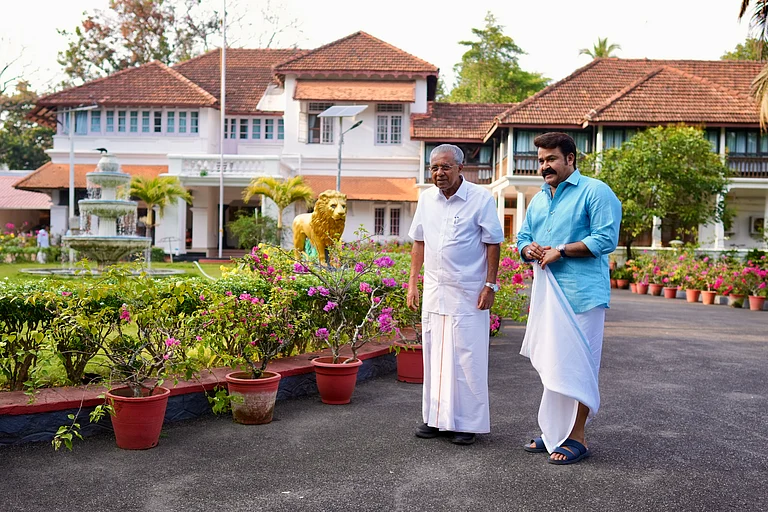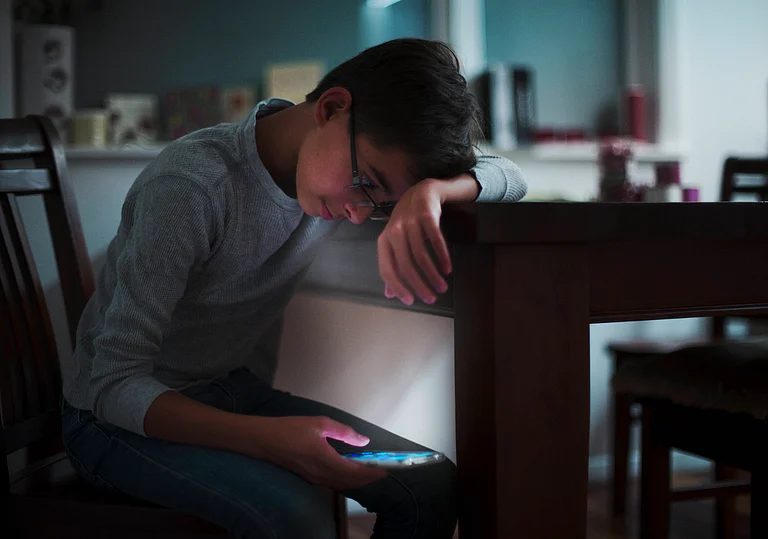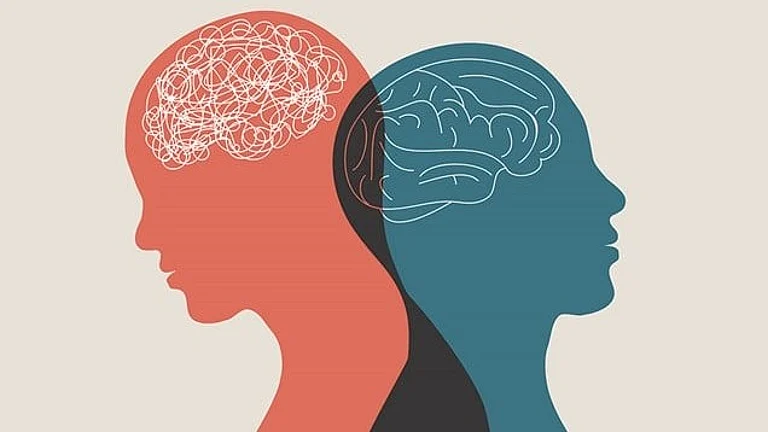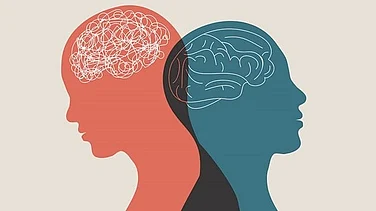
Isolation and mental distress are related, not the sole reason for Gen Z's isolation crisis.
Everyone needs real friends, but the older generation must stop labelling and diagnosing Gen Z.
COVID-19 rooted social isolation; the answer is meaningful friendships, not just social media 'connections'.
At just 20, Shreyanka Bakchi, a final-year psychology student, was diagnosed with clinical depression—for the second time. The first time was when she was on the brink of adulthood and the COVID-19 pandemic had confined everybody to their homes. It led many, including her, to face isolation and mental distress.
Bakchi experienced a strange kind of loneliness that she had never before felt. She was connected to her friends and family online, but the sense of being alone still crashed into her, in waves.
“I felt lonely in terms of not having someone near me—it was physical loneliness. I was virtually connected, but felt a void of real-world presence,” she recollected.
The years 1997 to 2012 mark the arrival of the first digital natives, popularly known as Gen Z. A 2024 Ipsos report shows that 65 per cent of India’s population belongs to Gen Z or Gen Y, the generation just before Gen Z arrived. The global research bigwig found that this unique set of people has a new, perhaps contradictory, approach to life: although the most digitally connected in history, its members report high levels of alienation and unwanted detachment. That is why conversations about Gen Z often focus on social justice, fashion, social media, new technologies—and loneliness.
According to the World Health Organization, approximately 10 per cent of adolescents are lonely. Additionally, a 2021 global survey, again by Ipsos, revealed that 43 per cent said they felt lonely and friendless at most times, especially after the COVID-19 pandemic.
Many refer to this generation as the loneliest. But isn’t this Gen Z born into a world where it can easily connect and reach out?
Their problem begins in the physical world: while urbanisation encroached upon neighbourhood parks and playgrounds, digital platforms and online games became as much more accessible and attractive as alternatives. Often, friends or family can manage to meet only after months. But following a brief session of mutual updates, they long to return to their lives on their digital devices. Unconsciously, mindless scrolling has come to be preferred over conversations across a table.
That is how the stories of childhood and friendship vary largely for Gen Z compared with the previous generations. Even stories of mischief have changed—for many, adolescence is no longer about stealing mangoes off trees but about making ironic comments on each other’s social media posts. Plus, it is an era of instant gratification, where every notification and alert almost instantaneously demands full attention. Digital platforms are saturated with online communities offering respite from loneliness, but the comments, reposts and group chats cannot replace the loneliness epidemic. Beneath the incessant buzz of engagement or performative interactions lies a quiet disconnect that many young people feel.
“Our generation is quite lonely. Due to social media, people are isolated not only from others but also from their true selves,” said Vaishnavi Shriwas, a 16-year-old student.
According to many mental health experts, Gen Z seems isolated, though the sociologists step in with an alternative view: this is a far more engaged generation that is part of a larger online community.
“The rise of nuclear families has certainly increased loneliness, so much so that it is not wrong to call it an epidemic,” said Dr Veena Gupta, a psychologist and professor at the University of Delhi. “Gen Z tends to be lonelier than the millennial generation. They are connected more through screens than face-to-face,” she said.
On the other hand, prominent sociologist and author Dipankar Gupta said, “The idea of them [Gen Z] being lonely comes from older generations. We assume they’re lonely because they spend all day on their computers, but they are actually communicating all the time. In fact, they might be over-communicating.”
Over-Communicating or Truly Alone?
The crux is how we define connection. For Gupta, digital socialisation is very real and, unlike past generations, Gen Z does not have to put in as much effort as it takes to meet face-to-face. It is always in touch. “People of my generation used to meet friends when we had time to go out and find a spot to chat. Now, people can connect visually or virtually at any time,” he said.
Seen from this perspective, the virtual life is not a lesser form of interaction. In fact, it can foster a deep, almost intimate, knowledge of one’s peer group and beyond. “They know who’s sick, who’s well, who’s happy, who’s not, in ways that we never did,” Gupta said. The real issue, then, is the generational misunderstanding of ambition and lifestyle.
With parents no longer the idealised ‘heroes’ they once were, Gen Z is charting its own course. “They want to experience the here and now, and that’s a big difference [from earlier generations],” in Gupta’s words.
But this departure from traditional goals is what leads older generations to mistakenly believe the youth are “frustrated”, “disoriented”, or “lonely”.
Psychological Cost of Virtual Living
But according to Dr Veena Gupta, loneliness is certainly a prevailing clinical issue. She identified two kinds: the one stemming from physical isolation and the other from deeper emotional loneliness—the feeling disconnected amidst a crowd. “I believe the latter, emotional loneliness, is more serious,” she said. And online interactions cannot replace that desire for real-world connection. “Relationships shown in the media and on social media are certainly biased. Young people believe they represent reality, forming unrealistic expectations for real life,” she added.
“I was diagnosed with depression again recently. Now, I go to college, meet loads of people and don’t stay with family any more. I have many friends, but still, at times, I feel like there’s nobody to hear me even though I am surrounded by people—I really don’t know how to open up to them,” as Bakchi said.
Talking to someone, an active listener shows empathy, such as by making eye contact, or a friend might pat you on the shoulder, even hug you. “These gestures...cannot be substituted by online interactions,” said Dr Veena Gupta, adding, “5,000 online ‘connections’ can make us forget that quality relationships—just someone to share our feelings with—always mattered more.”
Of course, what adolescents think matters more—some prefer virtual circles to physical ones, finding more comfort and connection online than anywhere else. “I feel more comfortable with my online friends, and spend most of my time with them. On the other hand, I often feel neglected and ignored by friends I meet regularly,” said Yuvaan Jain, an 18-year-old school student.
The reliance on this digital world, Dr Veena Gupta warns, has long-term consequences, especially after extended online schooling during the pandemic. These effects include shorter attention spans, device dependency and memory decline. A significant skill lost in the digital landscape is resilience. “Children are not learning how to handle failure, how to accept ‘no,’ or how to deal with rejection. As a result, we’re seeing a growing trend in suicide and homicide cases each year,” she cautions.
Loneliness Vs New Lifestyle
So, is Gen Z lonely or misunderstood? Dipankar Gupta believes this generation prioritises experience over savings and even practices religion in new, carnival-like ways. “They want to experience the moment,” he said. That does not mean they can be labelled as “frustrated” or “disoriented”.
Questions will persist: Gen Z is constantly online, but whether it is truly connected is a question with very different answers.





























